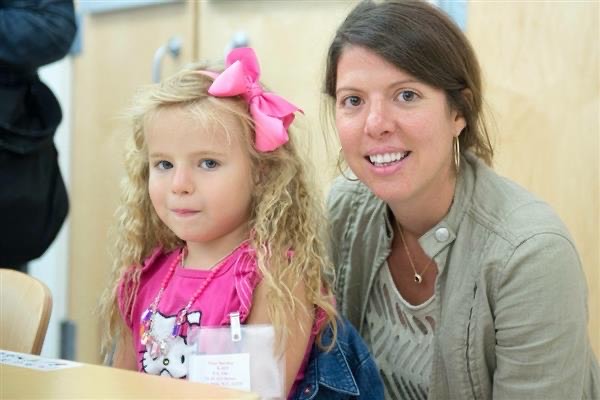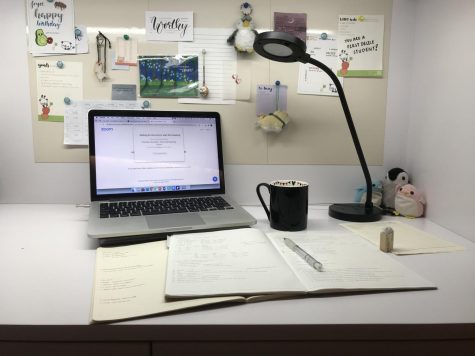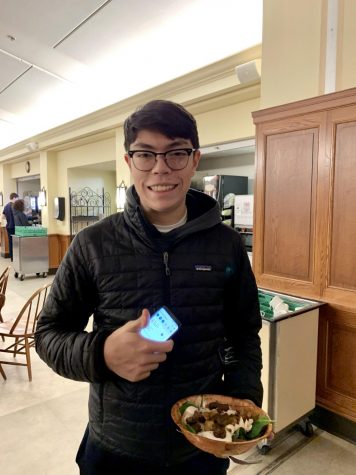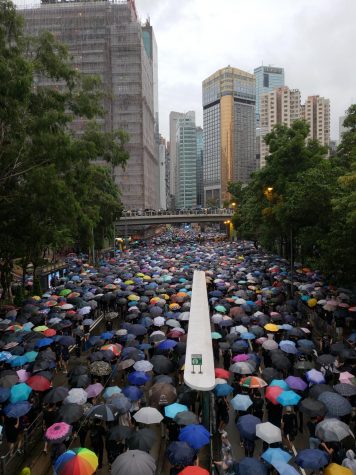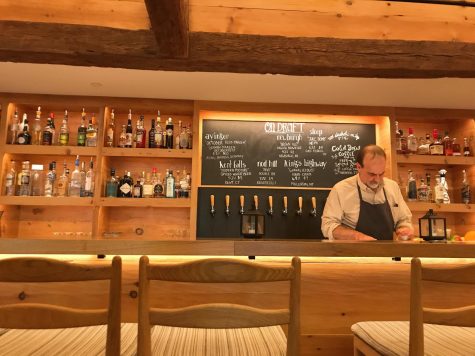Students and School respond to the historic 2020 election
December 30, 2020
The recent 2020 US presidential elections not only showed how polarized the nation is, but the results were unprecedented in terms of voter participation, the greatest in 120 years with 66.7% of eligible voters participating, even amid a pandemic. The two candidates, the incumbent President Donald J. Trump, the Republican candidate, and Joseph R. Biden, the Democatic candidate, couldn’t have been more different in character and tone, as well as on the issues, in a contentious run-up to election day on November 3, with arguments still prevailing today due to the special Senate election still to be held in Georgia on January 5, and President Trump still not conceding the race to Biden, despite Biden’s certified victory.
Comprised of students from almost all 50 states and an international student population of about 30%, the Kent community would certainly be no exception to diversified opinions and the lively and contentious debates that have taken place all across America. However, the opportunity to share our diverse opinions on the election and all the controversies wrapped up in it was probably most prevalent in US History classrooms on the Kent campus this fall. As such diversified viewpoints could cause division and unrest within any community, Kent’s History Department instead provided students with a space for safe discussion, where they could feel comfortable sharing their opinions, while learning more about the election process.
This month, Kent News was able to interview Ms. Thomsen, History Department chair, who explained the department’s efforts to underscore the importance of free and fair elections, while also maintaining equally free and fair discussions within the classroom. Realizing the potential for disagreement, heated debates and emotions, Ms. Thomsen sent out “Civil Discourse Discussion Tips for Our Current Political/Election Context” to the entire Kent community. She further informed that the email was a collaborative effort by the History Department, Mr. Saxton of the Math Department, and Mr. Reinhardt, Dean of Students.
To provide guidelines to faculty for conducting productive discussions and for students seeking support if needed, Ms. Thomsen added that “Each of us, adults and students alike, will experience it differently. Our goal is to provide direction and resources to teachers and advisors in order to create a supportive, inclusive environment for all. We encourage students to approach discussion in thoughtful ways, to address disagreement with respect, and to reach out to their advisors, coaches, teachers, and other adult community members if they need support.” Her message emphasized the importance of making a place for all voices to be heard. In addition to keeping an open mind and developing more accepting attitudes towards different viewpoints, she also included “tips for thoughtful discussion,” how teachers and advisors should respond to discussions, and various links for more election information.
In US History, in particular, students learned about the intricacies of the election process that leads to selecting a President, while some classes even encouraged students to write and talk about their individual reflections. Classes such as AP Government, AP United States History and AP Economics heavily blended election coverage into the curriculum and content goals. Ms. Thomsen, teaching AP Gov, informed Kent News that “teachers changed their curriculum slightly based on current events.” For instance, classes discussed the role of the judiciary in US government, as well as Supreme Court justices during the confirmation of Amy Coney Barret to replace the “notorious” Justice Ruth Bader Ginsberg. Moreover, US History taught about the electoral college system in advance, which helped students better understand later controversies that took place with recounts and final certification of election results.
In short, the History Department and History teachers at Kent worked tirelessly to use the recent historic and unprecedented US Presidential elections as a significant opportunity to teach students not only about the election at hand, but while maintaining a thoughtful tone that would prevent any inappropriate discourse on campus, effectively discouraging divisions based on politics in our community, and instead fostering an environment for all voices to be heard.


